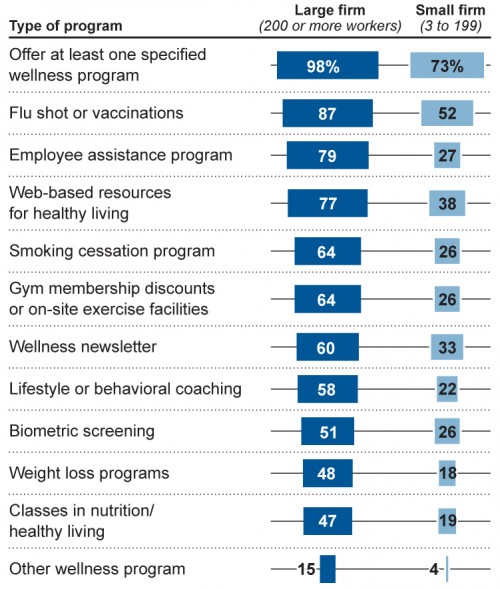Transparency is extremely important to us, so we are letting you know that we may receive a commission on some of links you click on from this page. See our disclaimer.
“Workplace wellness programs, one of the pillars of the national health care overhaul, are increasingly popular among employers who believe they can help control costs and workers who see them as a perk,” the Chicago Tribune reports.
“Some features of successful programs include long-term planning, significant incentives to participate and rigorous evaluation. Wellness programs typically include weight loss and smoking cessation programs, fitness rooms or subsidies for gym memberships, walking paths, drug and alcohol abuse programs, stress management and online support systems that include tips for healthier living. Increasingly they include monetary incentives to get people to participate.”
“Surveys show that about half of U.S. employers offer some kind of wellness program, and the number is growing. In 2012, nearly half of employers without a program said they intended to introduce one, RAND Corp. reported last year.”
“Employers overwhelmingly trust wellness programs to make employees healthier, reduce absenteeism, improve productivity and ultimately save money. A survey released in September by the Kaiser Family Foundation — nonpartisan, nonprofit think tank focused on health issues — found that 71 percent of companies think wellness programs are very effective (28 percent) or somewhat effective (43 percent) at controlling escalating health care costs. It's their most favored strategy, the survey found, more than narrowing provider networks or tightening managed care or even increasing employee cost-sharing.”


0 Comments